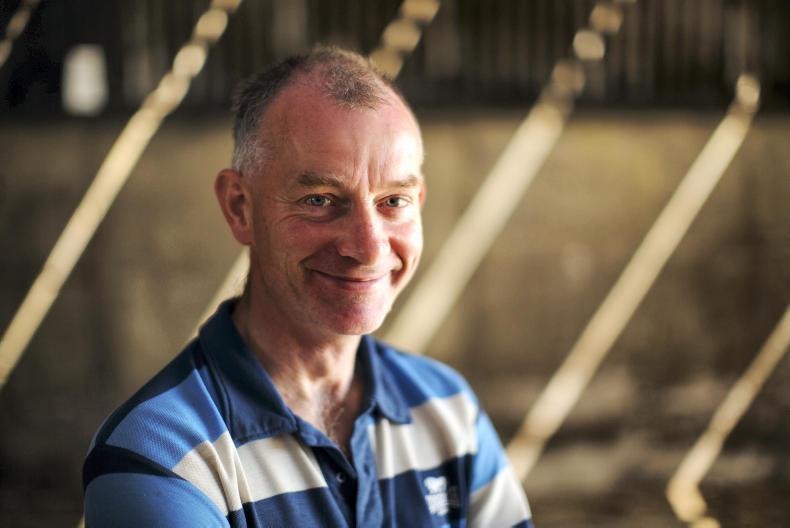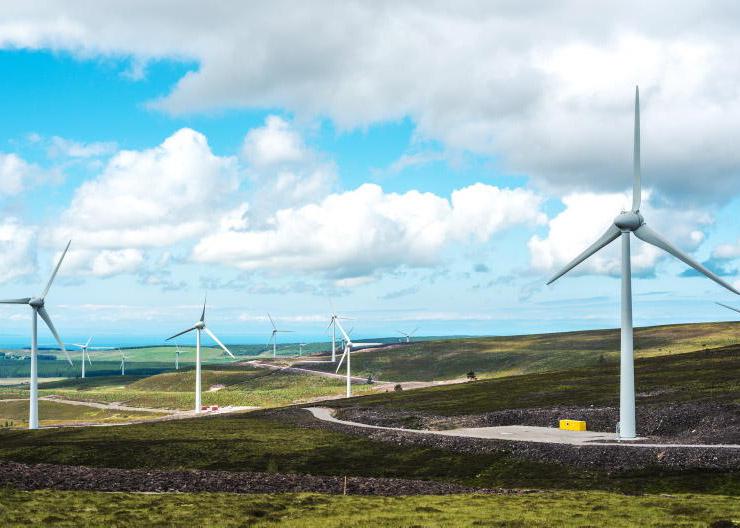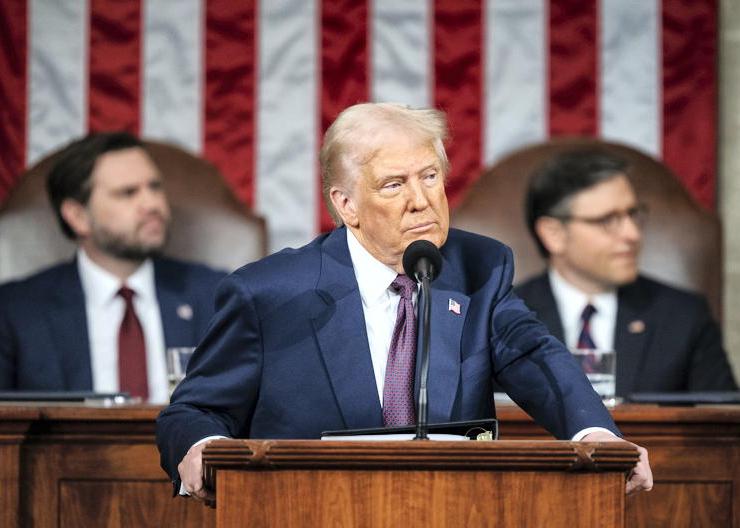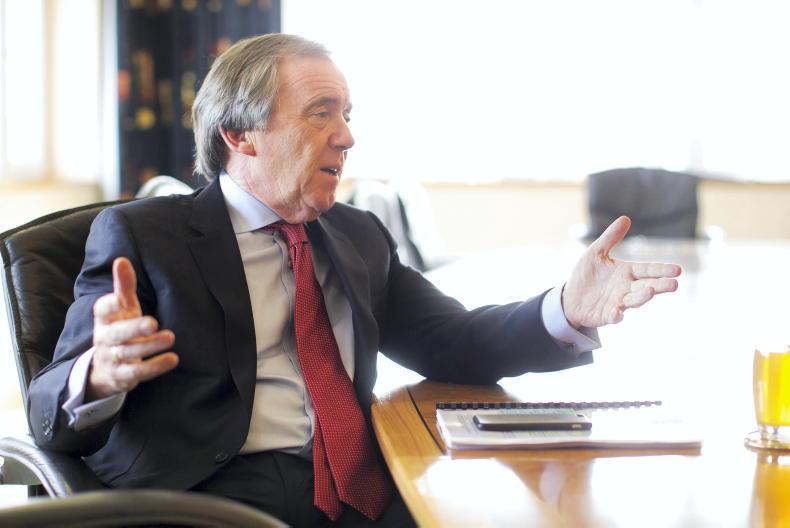There are two issues you should know about climate change.
Climate science is complicated.Climate politics is far more complicated.Beware of the hidden agenda.Opinions get more traction with the public than facts.There’s always more than two issues.It can be very difficult to have a discussion on something that already has majority consensus.
To that end, it has been useful to have President Trump questioning climate change realities. Debate will always get more front pages and airtime than general agreement.
Trump withdrawal hard to believe
The Paris Agreement was one time of consensus that did get international coverage. I was privileged to witness the coming together of political leaders and scientists for the good of the planet at COP21 in Paris in December 2015. Seeing President Trump now pulling the US out is hard to believe having seen the integral part NASA plays in research and monitoring.
I have always been proud to be Irish, just as anyone should be proud of their country. The difference with President Trump is that he is still in election mode trying to “make America great again”, building a wall physically and metaphorically to keep others out and protect their own interests. This is similar to the Brexit agenda of being stronger alone, although Teresa May’s election wasn’t as successful.
The trouble is that no country can truly work alone on what is a global issue
The trouble is that no country can truly work alone on what is a global issue. Every country reacted to the need to ban CFC gases to protect the ozone layer and it has worked. Once the science was proven, everyone involved rowed in to find solutions.
All leaders have a responsibility to the public good. American companies such as Apple and Google have been quick to distance themselves from President Trump’s policies. They have invested in climate-smart technology and don’t want to see any reputational damage internationally. Meanwhile, though, the climate sceptics have been given oxygen.
With this in mind, I was very disappointed with Matt Dempsey’s article and the editorial comment about Richard Lindzen’s recent speech in Dublin. It may have been intended as a prompt for debate, but read very much as being a new scientific discovery. Lindzen claims research shows that methane is not a problem to our climate, especially as it’s such a small part of the atmosphere relative to water vapour.
I’m not a scientist, but I love science
I’m not a scientist, but I love science. The key to science is to keep questioning. Lindzen’s science has been questioned and proven wrong. To have it put out in the context of Irish agricultural emissions as an area worth exploring does no favours to Irish agriculture.
To have Maynooth’s John Sweeney in the next week’s edition of the Irish Farmers Journal say that farmers “deserve to be told the truth on climate change” is right. However, his whole article is dedicated to explaining that climate change is real and how bad methane as a carbon gas is. It is a shame to be still wasting time on a “debate” that has been proven.
The reality is that globally, farmers are responding to climate change. Firstly, changing weather patterns are directly affecting farming. Secondly, it actually makes economic sense to reduce emissions with more efficient animals and lower energy use.
Importance of food producers
The Paris Agreement is the first international climate agreement to recognise the importance of food producers and the role of carbon sinks such as soil and the plants that we grow. The French organisers were also pushing the concept that increased carbon through organic matter in the soil gives the double win of reduced atmospheric carbon and increased crops.
This is the real climate debate. Debating on how best to deal with emissions. Debating new technologies such as the exciting seaweed trials reducing bovine methane, such as anaerobic digesters powering lorries and tractors, such as bacteria that can fix nitrogen for grass and cereals.
Anything else is a disservice to science and to the farmers who are already responding.
Read more
European Parliament to vote on new climate targets this week
Full coverage: agriculture and climate change
There are two issues you should know about climate change.
Climate science is complicated.Climate politics is far more complicated.Beware of the hidden agenda.Opinions get more traction with the public than facts.There’s always more than two issues.It can be very difficult to have a discussion on something that already has majority consensus.
To that end, it has been useful to have President Trump questioning climate change realities. Debate will always get more front pages and airtime than general agreement.
Trump withdrawal hard to believe
The Paris Agreement was one time of consensus that did get international coverage. I was privileged to witness the coming together of political leaders and scientists for the good of the planet at COP21 in Paris in December 2015. Seeing President Trump now pulling the US out is hard to believe having seen the integral part NASA plays in research and monitoring.
I have always been proud to be Irish, just as anyone should be proud of their country. The difference with President Trump is that he is still in election mode trying to “make America great again”, building a wall physically and metaphorically to keep others out and protect their own interests. This is similar to the Brexit agenda of being stronger alone, although Teresa May’s election wasn’t as successful.
The trouble is that no country can truly work alone on what is a global issue
The trouble is that no country can truly work alone on what is a global issue. Every country reacted to the need to ban CFC gases to protect the ozone layer and it has worked. Once the science was proven, everyone involved rowed in to find solutions.
All leaders have a responsibility to the public good. American companies such as Apple and Google have been quick to distance themselves from President Trump’s policies. They have invested in climate-smart technology and don’t want to see any reputational damage internationally. Meanwhile, though, the climate sceptics have been given oxygen.
With this in mind, I was very disappointed with Matt Dempsey’s article and the editorial comment about Richard Lindzen’s recent speech in Dublin. It may have been intended as a prompt for debate, but read very much as being a new scientific discovery. Lindzen claims research shows that methane is not a problem to our climate, especially as it’s such a small part of the atmosphere relative to water vapour.
I’m not a scientist, but I love science
I’m not a scientist, but I love science. The key to science is to keep questioning. Lindzen’s science has been questioned and proven wrong. To have it put out in the context of Irish agricultural emissions as an area worth exploring does no favours to Irish agriculture.
To have Maynooth’s John Sweeney in the next week’s edition of the Irish Farmers Journal say that farmers “deserve to be told the truth on climate change” is right. However, his whole article is dedicated to explaining that climate change is real and how bad methane as a carbon gas is. It is a shame to be still wasting time on a “debate” that has been proven.
The reality is that globally, farmers are responding to climate change. Firstly, changing weather patterns are directly affecting farming. Secondly, it actually makes economic sense to reduce emissions with more efficient animals and lower energy use.
Importance of food producers
The Paris Agreement is the first international climate agreement to recognise the importance of food producers and the role of carbon sinks such as soil and the plants that we grow. The French organisers were also pushing the concept that increased carbon through organic matter in the soil gives the double win of reduced atmospheric carbon and increased crops.
This is the real climate debate. Debating on how best to deal with emissions. Debating new technologies such as the exciting seaweed trials reducing bovine methane, such as anaerobic digesters powering lorries and tractors, such as bacteria that can fix nitrogen for grass and cereals.
Anything else is a disservice to science and to the farmers who are already responding.
Read more
European Parliament to vote on new climate targets this week
Full coverage: agriculture and climate change










SHARING OPTIONS